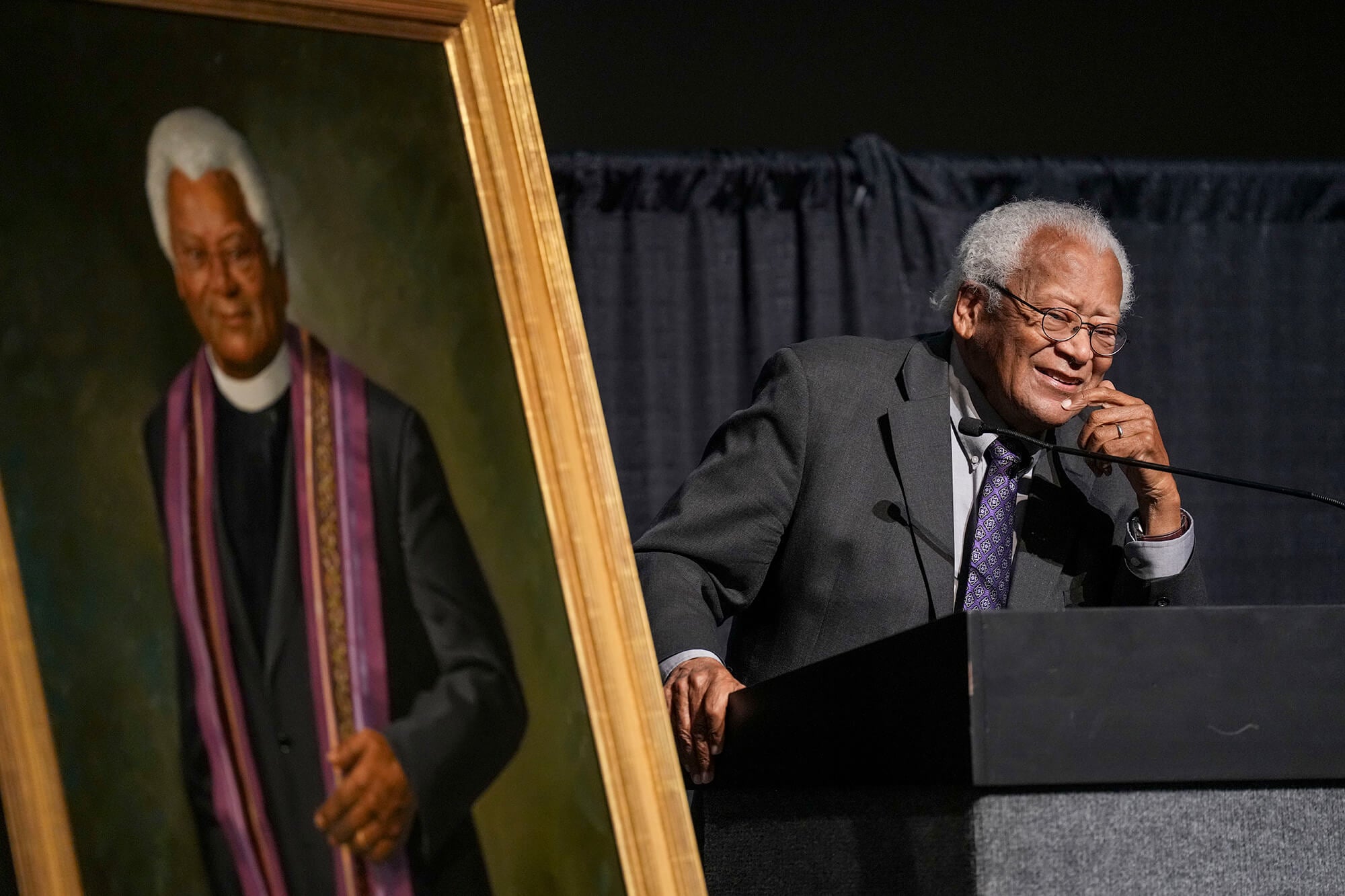When the Rev. James Lawson entered Vanderbilt Divinity School in 1958 as a 30-year-old transfer student, he was well-versed in the teachings of Mahatma Gandhi after having traveled to India as a Methodist missionary. His knowledge of Gandhi’s concept of nonviolent resistance, or satyagraha, was the primary reason Martin Luther King Jr. had urged Lawson to come to Nashville in the first place. Satyagraha, which translates as “holding firm to the truth,” would prove to be a guiding principle for Lawson and other civil rights activists as they challenged the Jim Crow laws of Nashville.
At the Divinity School, Lawson led workshops to teach strategies for nonviolent resistance to students from Fisk and Tennessee State (then Tennessee A&I) universities, and American Baptist College. These and other students soon formed the Nashville Student Movement, which organized sit-ins at segregated downtown lunch counters in Nashville and helped lay the foundation for Freedom Rides throughout the South.
Upon learning of his leadership role in organizing the sit-ins, Vanderbilt expelled Lawson in 1960. The expulsion made national news, and the dean of the Divinity School and many faculty and students left the university in protest. A compromise was worked out later to allow Lawson to complete his degree from Vanderbilt, but he chose to transfer to Boston University, where he later graduated.
Eventually, Lawson reconciled with Vanderbilt, and the university has since recognized him in multiple ways. Named the Vanderbilt Distinguished Alumnus in 2005, he taught on campus from 2006 to 2009 as a Distinguished University Professor. Lawson’s impact on campus is also felt through an endowed chair and a scholarship for undergraduate students established in his honor.
More recently, Vanderbilt launched the James Lawson Institute for the Research and Study of Nonviolent Movements. A trans-institutional collaboration between the Divinity School and the College of Arts and Science, the institute advances evidence-based research and nonviolent change while preparing the next generation of leaders, humanitarians and community organizers. Lawson, who donated his papers to the Jean and Alexander Heard Libraries’ Special Collections and University Archives, plays an integral role in the direction and growth of the institute as a primary adviser.
“The big task in the 21st century is that we move to let love be the power in which we organize every facet of society—every facet of society. “I happen to think that that can be done,” Lawson said during the dedication of Rep. John Lewis Way in Nashville in 2021. “Hatred can be replaced with love, and violence can be replaced with truth, with beauty, the spirit. I happen to think that can happen. We can beat our swords into plowshares, our spears into pruning hooks. Nashville for me is a wonderful illustration of where this happened before and must continue to happen.”
